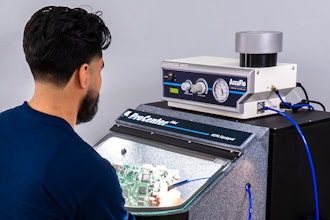
Researchers at Texas A&M University will spearhead a groundbreaking project to revolutionize medication administration for pediatric patients, thanks to an approximately $3 million grant from the National Institutes of Health (NIH).
This pioneering initiative explores using additive manufacturing, or 3D printing, to create customized tablets tailored to the unique needs of young children. The project is an interdisciplinary collaboration of experts from the College of Engineering, the College of Pharmacy and the School of Veterinary Medicine and Biomedical Sciences.
Traditional manufacturing methods yield mass-produced medicinal tablets with standardized dosages and sizes. However, due to their frequently changing weight and dosage requirements, pediatric and geriatric patients need greater flexibility in administering medications effectively.
Dr. Mathew A. Kuttolamadom, co-principal investigator and associate professor from the Department of Engineering Technology and Industrial Distribution, and his team will work on a manufacturing method that adapts to the evolving needs of pediatric patients, ranging from infants to 17-year-olds, by tailoring medication dosage and tablet size accordingly.
In addition to investigating the use of additive manufacturing, the team will work to maintain the drugs’ integrity and effectiveness.
“The additive manufacturing of pharmaceuticals presents a relatively new process that differs significantly from the additive manufacturing of metals or ceramics,” Kuttolamadom said. “Our primary challenge lies in comprehending this novel process and unraveling the unique aspects specific to pharmaceuticals. Overcoming these challenges is essential as we strive to advance the field and ensure the drug’s efficacy remains intact throughout/beyond the manufacturing process.”
Traditional mass-produced medications lack flexibility, which is needed in pediatric oncology. By leveraging the capabilities of 3D printing, medications can be customized in terms of size and dosage and the combination of multiple medicines within a single tablet.






















